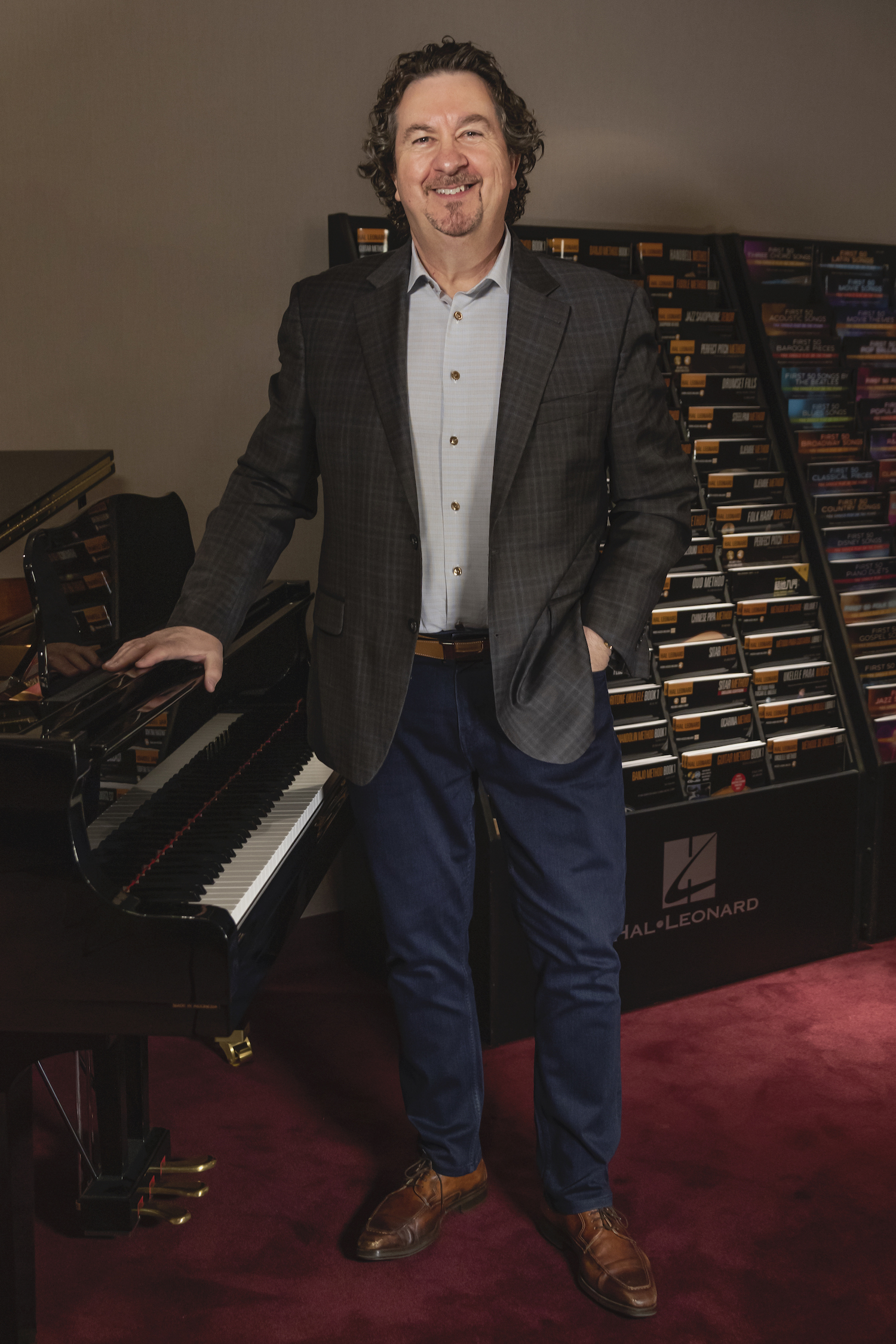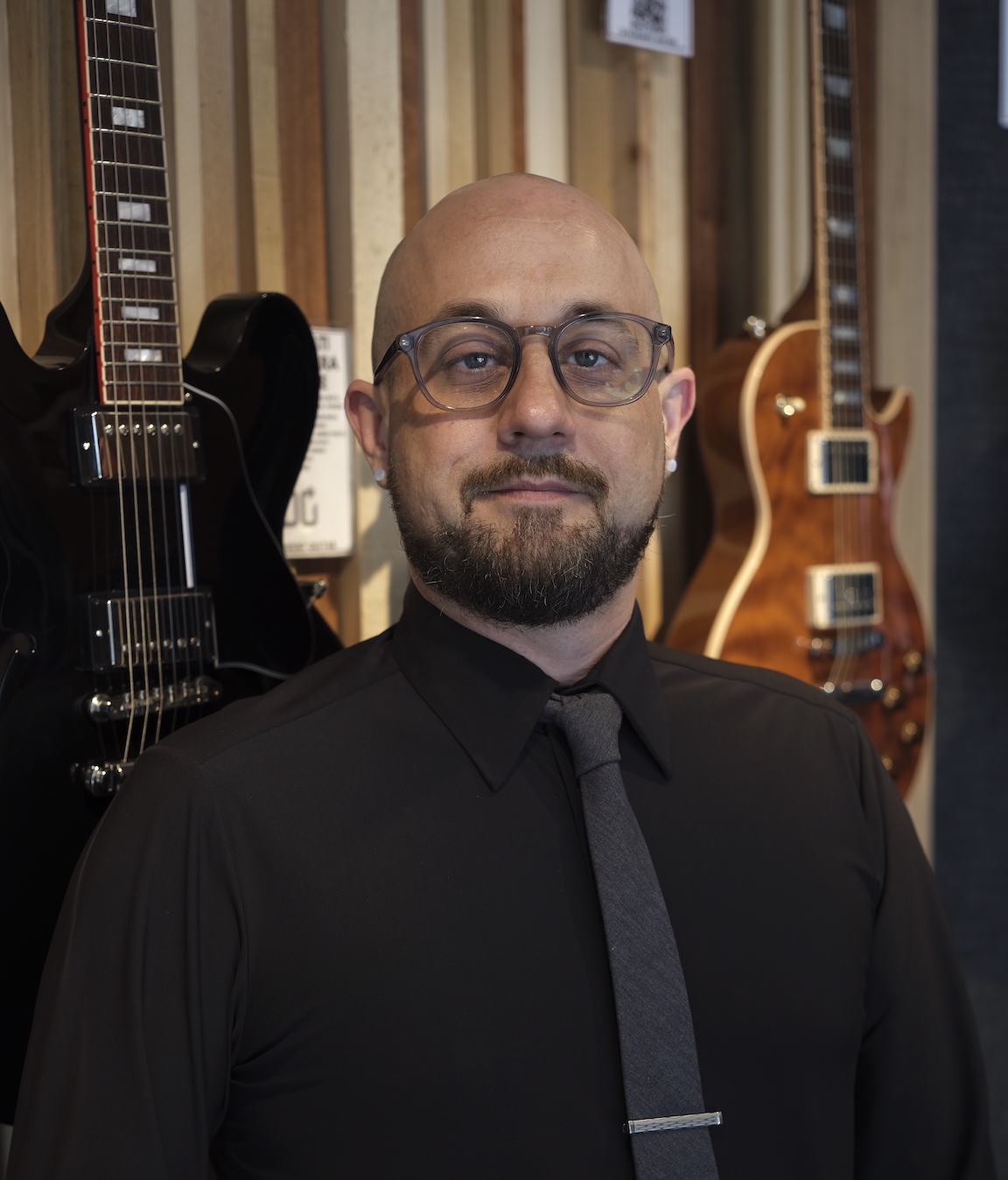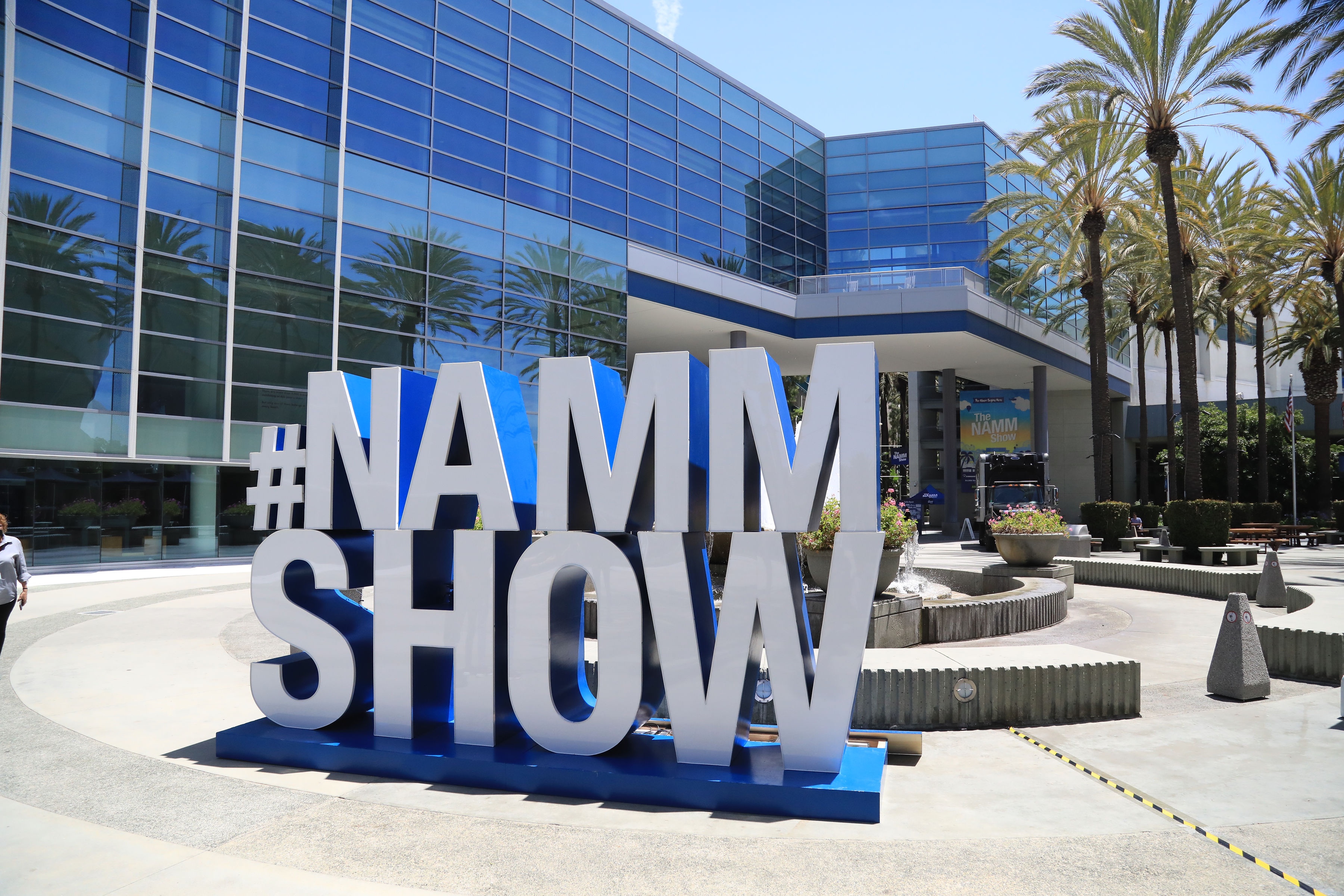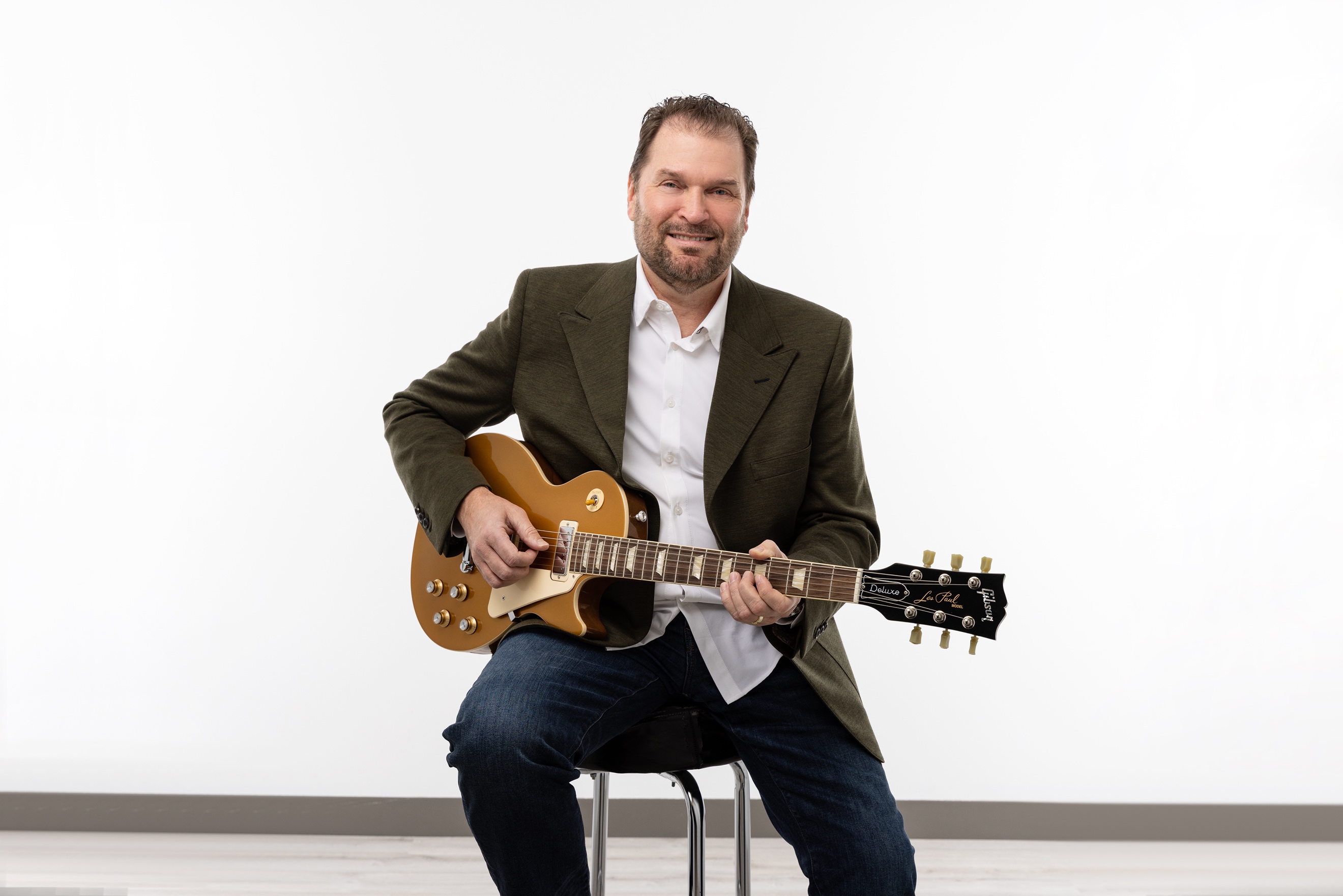
Hal Leonard CEO Larry Morton
HQ: Milwaukee
Founded: 1947
Employees: 698
Best selling product: Essential Elements Band Method, Hal Leonard Guitar Method, The Real Book and Encanto.
Fun Fact: When asked what the last song Morton had played on Spotify, he opened his app and responded, “The new Red Hot Chili Peppers album ‘Unlimited Love.’ I’ve been listening to that the last couple of days. In fact, that was my driving-into-work music this morning.”
How do you start your day?
I’m an early riser, and I like to exercise first thing, because, if I don’t get it done early, it’s not going to happen. I’m active in the triathlon community, so swimming, biking and running is a great way to set my mental and physical state for the day. Hal Leonard is a big global company, so by the time I get up, there are lot of things going on in our European office. Sometimes I’m handling these emails while I’m on treadmill or on a bike.
I’ve also tried to carve out about 20 minutes or so of think time before I get into my to-do list for day. I try to really think through what is the most important thing I need to get done that day, because I think we’ve all had nights when we’re driving home and saying, ‘I didn’t do a single thing I set out to do today. I spent the whole day reacting to everyone else.’ So, I like to have a little bit of time just to think about what I need to get done that day.
Can you give readers a little background on how you started at Hal Leonard?
Sure. I started with the company 31 years ago. I came up through the sales and marketing side. I worked my way through different positions, which I’m really glad about because right in the beginning, I dealt with all kinds of different customers, and I started learning the needs of our customers and also learned the Hal Leonard catalog, which is diverse. So, I did that for a number of years and then I took on more responsibilities in the rights and acquisition side and started leading the digital initiatives as well, as was involved in our geographic expansion in Europe and Asia. I was the president of the company for nearly 20 years, and I’ve been CEO now for three.
How would you describe your management style through those different roles in the company?
I’m very collaborative. I like collaborating with people to find solutions. People joke about it, but one of my sayings at the end of a meeting is, “Where’s the verb?” Because I really have zero tolerance for discussion without outcome. I think collaboration and action work together, and I think it’s disrespectful to everyone’s time if there’s talk about something, but no outcome.
Also, I believe you have to believe in what you’re doing and be passionate about it. And if you’re not passionate about it, what are you doing? But overall, I try to keep it lighthearted and fun.
To your point, we’re lucky to be in an industry that naturally exudes passion. By the way, Congrats on the 75th anniversary of Hal Leonard. What does this milestone mean to you?
You know, when I think about those 75 years, I think about the giants who helped build the company, such as our founders — Hal and Leonard and Roger. They were all music educators and creatives and really did a great job creating the spirit of what Hal Leonard is today.
Then the baton was passed on to Keith Marak, who joined the company in 1970. He led a buyout in 1985, and he transformed not only Hal Leonard, but the entire music print business at that time. He was a titan and an amazing, creative, strong leader. He was my mentor and my boss.
The other thing I would say is the premise of the business in the very beginning — the founders were former professional musicians and teachers — was “How do we make it easier for people to learn to play? And how do we keep them playing by giving them arrangements of songs?” So, when I think about 75 years, I wish we could determine the number of people, probably several hundred million, who learned to play music because of Hal Leonard. One of our internal phrases at Hal Leonard is “From cradle to Carnegie Hall.” And we really mean it. We encounter you as a person, probably in elementary school, when you might start piano or violin or sing the choir, and then we’re with you through middle school and into high school when AP courses take over and you probably have to drop your piano lessons, but we still love you anyway. [Laughs.] And then you go off to college and you might dabble a little bit in a rock band, and then you get married and have life obligations, but eventually want to rediscover piano. Now, you’re subscribing to one of our websites or buying our books. So, we’re with you through this whole music-making journey.
I think Hal Leonard has a unique position in the industry that way because, if you think about it, we’re one of the few companies where our sole business is creating everyone else’s customers. All the instrument manufacturers need us to do a great job because they need us to constantly be cultivating the next generation of musicians who care enough to buy new gear. I think that’s a pretty cool mission. And for a company to be in business, any kind of business, for 75 years is amazing.
That’s a really great point. Where do you envision the company in the Next 10 or even 75 years?
I think Hal Leonard will be on top and it will be front and center when people are making music. I 100 percent believe that. I think we’re a unique company, and our DNA is so tightly interwoven with the music maker. I know in my time at Hal Leonard we’ve evolved, and we kept following the market and innovating. If I look forward, it’ll be the same thing. We will continue to innovate.
When I look at the group of people in their 30s and 40s working here at Hal Leonard — the next-gen leaders of this company — they’re so talented and passionate and they’re going to take us to heights that I probably can’t imagine. So, when I look out 10 years, I think Hal Leonard’s going to continue to grow. We’ve doubled over the last six years as a company, and I think we’ll double again. And this next team is going to take us there.
The print business is resilient. I don’t think it’s going be a big growth area, but it’s continued to keep up with inflation. It’s a strong business. At this stage, we have 22 consumer-facing websites, and we’re heavily and aggressively digital. Yet, we’re still selling tons and tons of physical product. So, I think it’s what the consumer wants. They’re going to lead us, and we just have to follow them.
You know, the last two books I read were both physical, even though I’m a huge iPad guy. So, I think that tells us something about humans and how we interact with information. The print music business is not going away.
When we launched our first digital sheet music website in 1997, that was five years before iTunes. We were way ahead of the game, and I was personally convinced that this whole business was going to shrink. It was going to be pure digital, but now, all these years later, it’s not.
So, I think what’s going on is we’re always going to see a blend of physical product and digital product. And, I think people want to consume music in whatever way makes sense to them. Print music isn’t going anywhere.
Switching gears, Hal Leonard has a booming MI distribution business. Why has this been an important aspect of business for Hal Leonard?
You know, the MI products division grew far more quickly than we thought it would, and I think it’s because we found a niche. We found a place in the market where we add a lot of value, and I think the reason it has been successful is because there has been a huge amount of innovative products out there, and they’re in those startup phases, and it’s difficult for those companies to set up sales, marketing and distribution, right? Because of the nature of our print music business, we touch every one of those stores — from B&O dealerships to full-line shops. So, it just kind of made sense that companies that reach those stores would come to Hal Leonard.
How do you chose which brands to take on?
We vet everything very carefully, because we’re not going to let Hal Leonard’s name be attached to a bad product. Therefore, we’ve earned trust with dealers, where they’ll say, ‘Hey, if Hal Leonard took it on, I bet it’s a good line.’ In terms of the product lines, we really try to only go into a segment if we feel like we can make a big impact. So, we have a lot of pro-audio products, as well as drums and percussion.
Even though you’re the CEO of a company, you mentioned you still have time to read. What do you read for inspiration?
Well, it’s interesting. I just finished a book by Bob Iger, the former CEO of Disney, called “The Ride of a Lifetime.” I was really interested in his story, because, not that Hal Leonard is Disney, but we represent Disney’s [print music]. So, I wanted to understand that perspective, but I also thought, “My goodness, what a complex job.” You know, they’ve got cruise ships and theme parks and movies and streaming. And with Hal Leonard’s ecosystem, I wanted to learn about how someone at that level deals with all those different facets. I learned a lot. It was a great read.
If not music, what would you be doing?
I have never once considered another single thing. I mean, I came out of the womb playing music, and that’s me, you know. But if I had to answer, I would probably say a I’d be a novelist. And knowing me, I’d be writing novels about music.
I get that from my mother’s side of the family. She was the youngest of seven, and [my mom’s family is made up of] all writers, musicians, painters and very artistic folk. So, I would probably write. I love the word. The word is very important.













